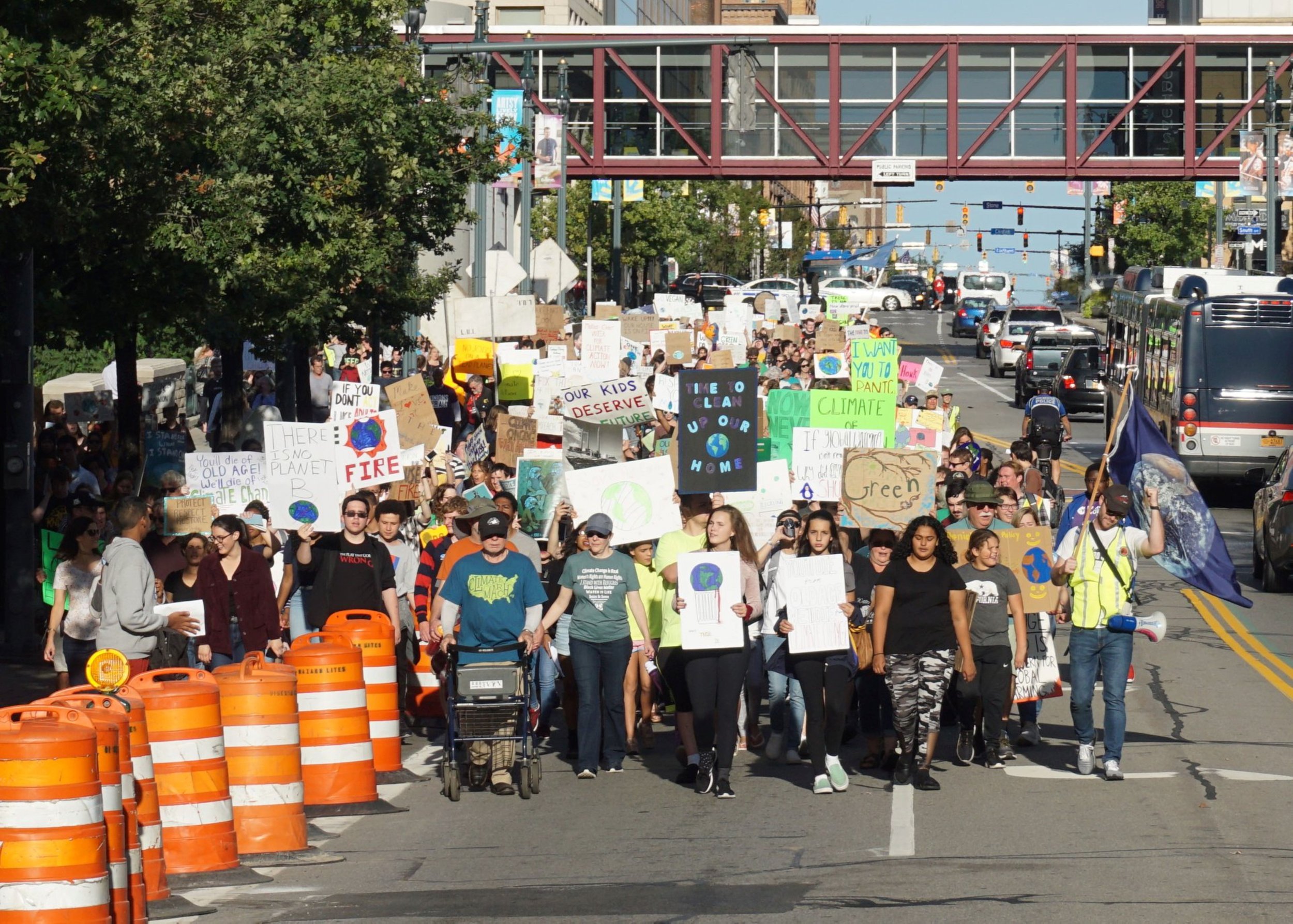
Climate Justice
A robust body of research demonstrates that those who have contributed LEAST to causing the climate crisis have experienced, are experiencing, and will experience the MOST devastating impacts. Globally, the least developed countries produce far fewer greenhouse gas emissions than more developed countries, but are less able to respond to climate impacts, such as extreme weather events, shifting agricultural production, and increased scarcity of natural resources, such as water. (For example, the entire nation of Nepal, with 29 million people, produces the same amount of greenhouse gases as our nine-county region, which has only 1.2 million people. This means that people in our region produce over 24 times more climate-changing emissions per capita than people in Nepal.)
However, low-income communities and communities of color in our own region and country are also disproportionately impacted by environmental health hazards, including the impacts of climate change, such as temperature extremes, severe storms, flooding, and vector-borne illnesses exacerbated by climate change. The climate justice movement therefore:
Focuses on addressing the systemic, root causes of climate change that create and/or exacerbate other inequalities in our communities
Insists that all people and communities have a right to equal protection and equal enforcement of environmental laws and regulations
Takes a human-centered approach, prioritizing the rights of vulnerable populations and equitably sharing the burdens and benefits of climate change and its impacts
Lifts the voices of historically marginalized communities
Works in solidarity with local and global communities that are being hit first and worst by climate change
Seeks to realign our economy with our natural systems
The Climate Solutions Accelerator is firmly committed to co-creating a local climate justice movement that prioritizes equity and works toward climate solutions that can be used to mitigate other systemic community concerns, such as poverty, racism, and health disparities.
In our region, key climate justice priorities must include: creating access to affordable clean energy, improving the health and efficiency of low-income housing and rental properties; developing green workforce development opportunities; building a robust, efficient and accessible public transit system; supporting local food initiatives; and forging a healthcare system that appreciates and prioritizes the intersections of equity and climate.
Check out additional Climate Justice resources:
Climate Justice Climate Justice Alliance
April 2021
Climate of Change: 22 Days of Learning and Action for Intersectional Climate Justice
From April 1-22, 2021, the Climate Solutions Accelerator joined seven fellow community organizations to plan and host Climate of Change: 22 Days of Learning and Action for Intersectional Climate Justice in Rochester and Beyond. Four hundred people from throughout the region registered for the intensive series, which included daily readings and videos focused on local climate justice issues, causes, and impacts; live keynote speakers and panel discussions, and small group discussions. Over fifty community organizations and companies signed on to promote and participate in the series as Community Change Partners; registration and sponsorship contributions were granted to community organizations’ climate justice work through a participatory grantmaking process.
Use the buttons below to learn more about the series content, partners, presenters, etc.!

